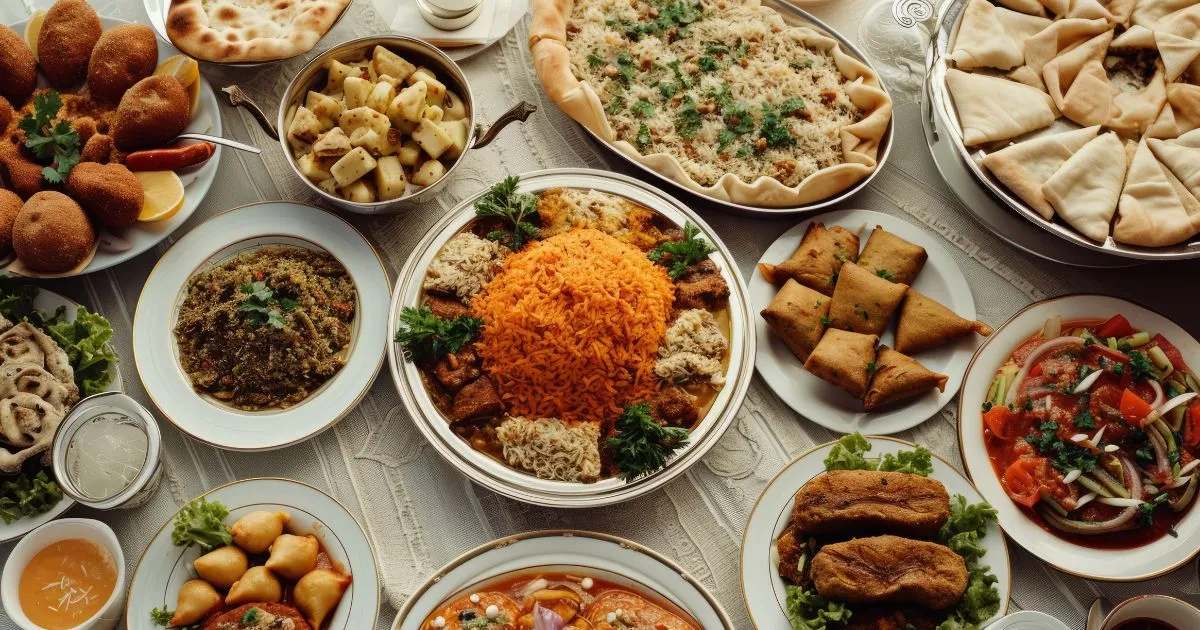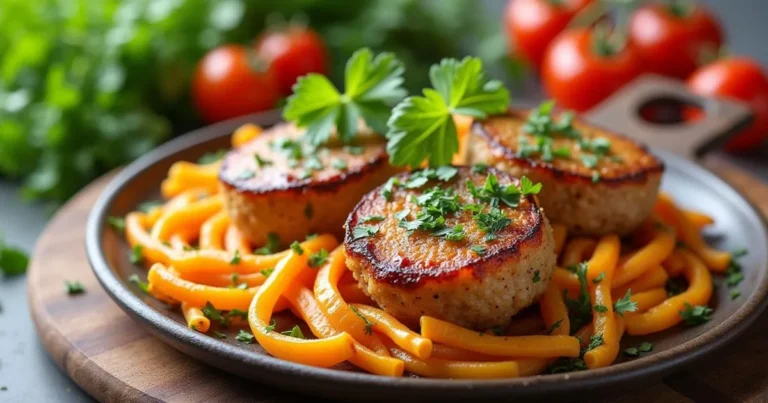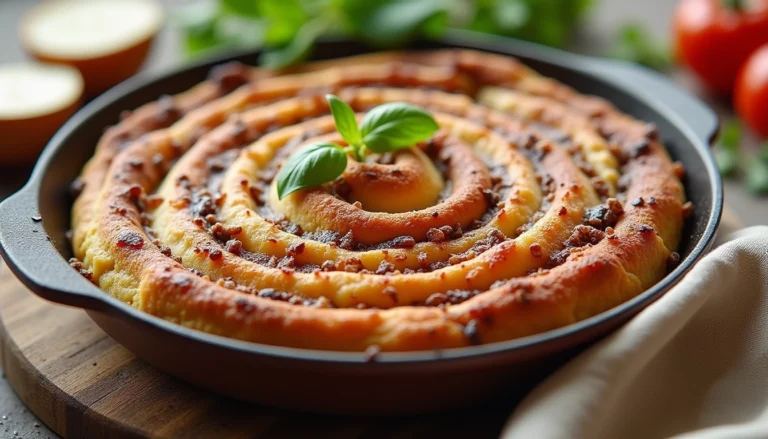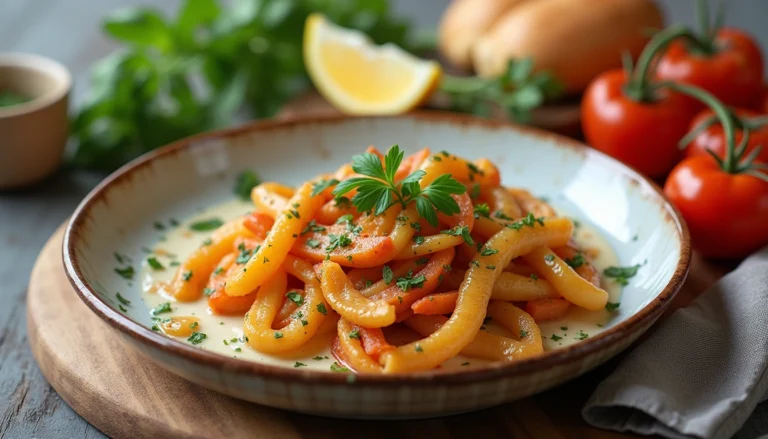Vegetarian Indian Food Recipes – Delicious, Healthy, and Easy to Make
A Journey Through Flavor, Culture, and Comfort
Imagine walking into a kitchen where the warm scent of cumin greets you before you even step in. A pot of simmering dal bubbles softly, filling the air with earthy, comforting notes. The counter is dotted with bright vegetables — golden turmeric-coated potatoes, fresh spinach leaves, and a bowl of creamy paneer cubes waiting to join the feast.
If you’ve ever been curious about vegetarian Indian food, you’re in for more than just recipes. You’re about to discover a culinary tradition that’s been perfected over centuries, blending health, flavor, and artistry in every bite. Whether you’re cooking for your family, trying to eat more plant-based meals, or simply craving bold and colorful dishes, Indian vegetarian recipes offer you endless inspiration.
In this guide, you’ll find not just a list of dishes, but a deeper understanding of the ingredients, cooking techniques, and cultural roots behind them. And yes — you’ll walk away with practical, step-by-step recipes you can start making tonight.
Table of Contents
Why Vegetarian Indian Food is Loved Worldwide
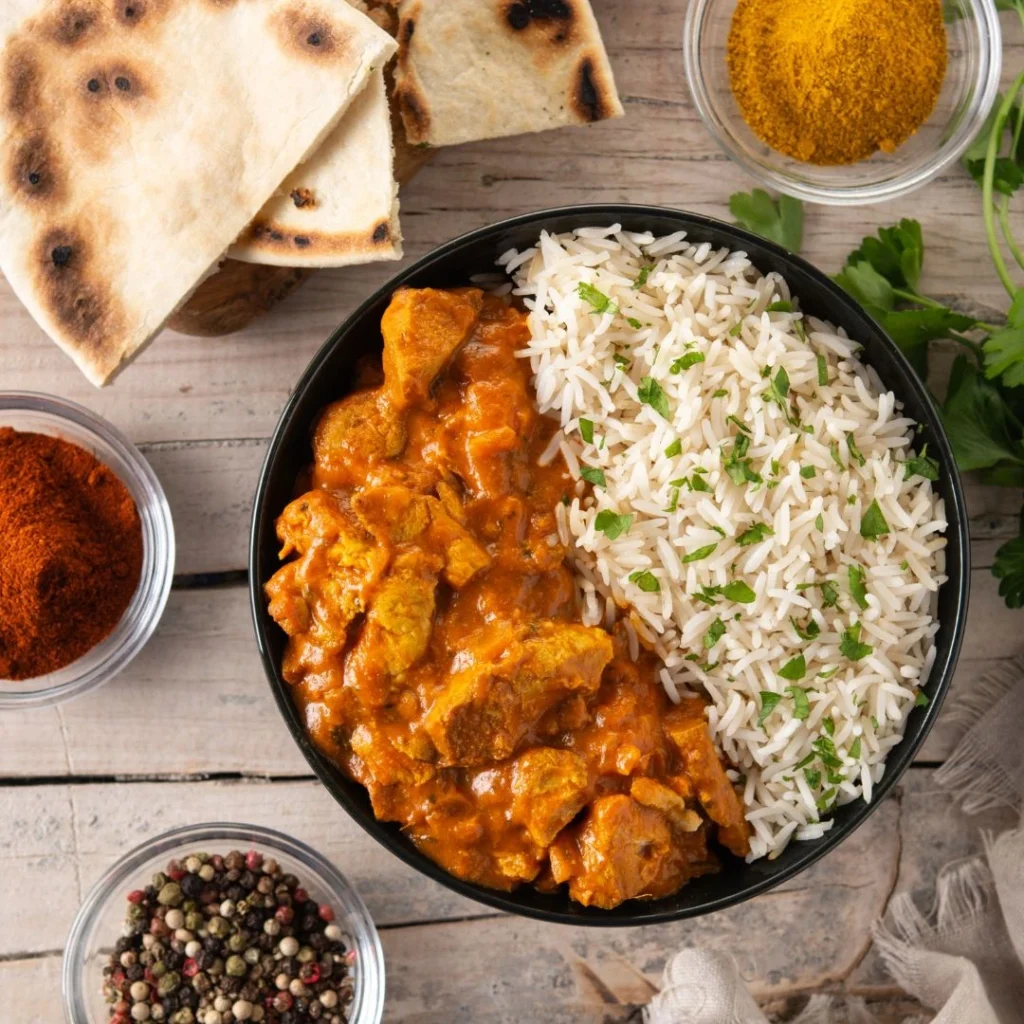
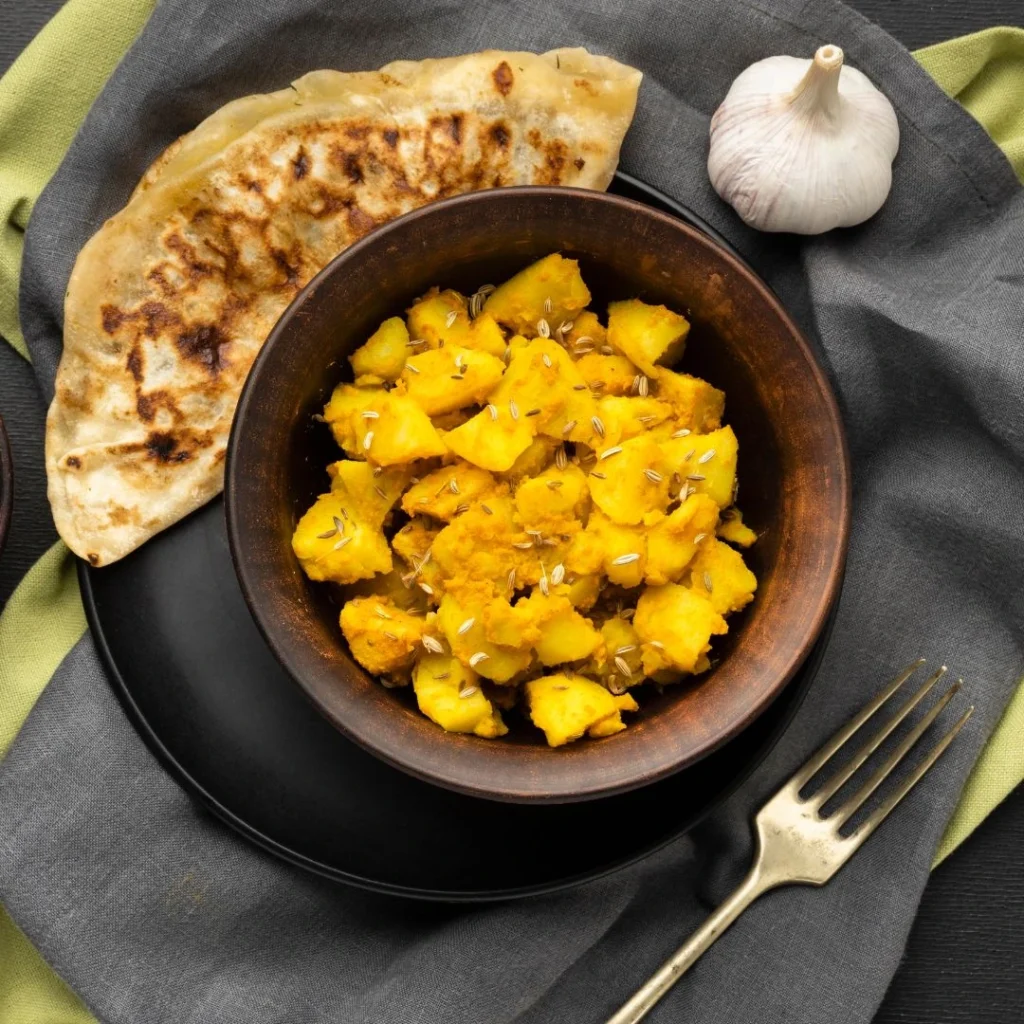
Indian cuisine has a unique position in the world of vegetarian cooking. For many cultures, vegetarianism is a dietary choice. In India, it’s also a way of life, deeply rooted in religion, Ayurveda (traditional medicine), and a respect for nature.
Here’s why you’ll find Indian vegetarian recipes everywhere from street stalls in Mumbai to high-end restaurants in London:
- Cultural Roots: Vegetarianism has been practiced for thousands of years, influenced by Hinduism, Jainism, and Buddhism.
- Flavor Complexity: Layers of spices create depth without relying on meat.
- Nutritional Richness: Lentils, beans, vegetables, and dairy offer protein, fiber, vitamins, and minerals.
- Global Adaptability: Ingredients can be swapped for local produce without losing authenticity.
And perhaps most importantly — you never feel like you’re missing out. The flavors are so satisfying that even lifelong meat-eaters fall in love.
Essential Ingredients in Vegetarian Indian Cooking
If you want to create authentic vegetarian Indian food at home, your pantry needs a few essentials. Think of these as your flavor toolkit.
| Ingredient | Role in Flavor & Nutrition | Common Dishes |
|---|---|---|
| Turmeric | Anti-inflammatory, adds golden color | Dal Tadka, Vegetable Curry |
| Paneer | Rich protein source | Palak Paneer, Paneer Butter Masala |
| Lentils (Dal) | High in fiber & protein | Masoor Dal, Tadka Dal |
| Cumin Seeds | Warm, earthy flavor | Jeera Rice, Curries |
| Garam Masala | Complex spice blend | Chana Masala, Kofta Curry |
| Mustard Seeds | Adds tangy nuttiness | South Indian Sambar, Chutneys |
| Coconut Milk | Creamy base for curries | Vegetable Kurma, Kerala Stew |
💡 Pro tip: Always roast your spices in a little oil or ghee before adding liquids — this “tempering” wakes up their full aroma.
Must-Try Vegetarian Indian Food Recipes
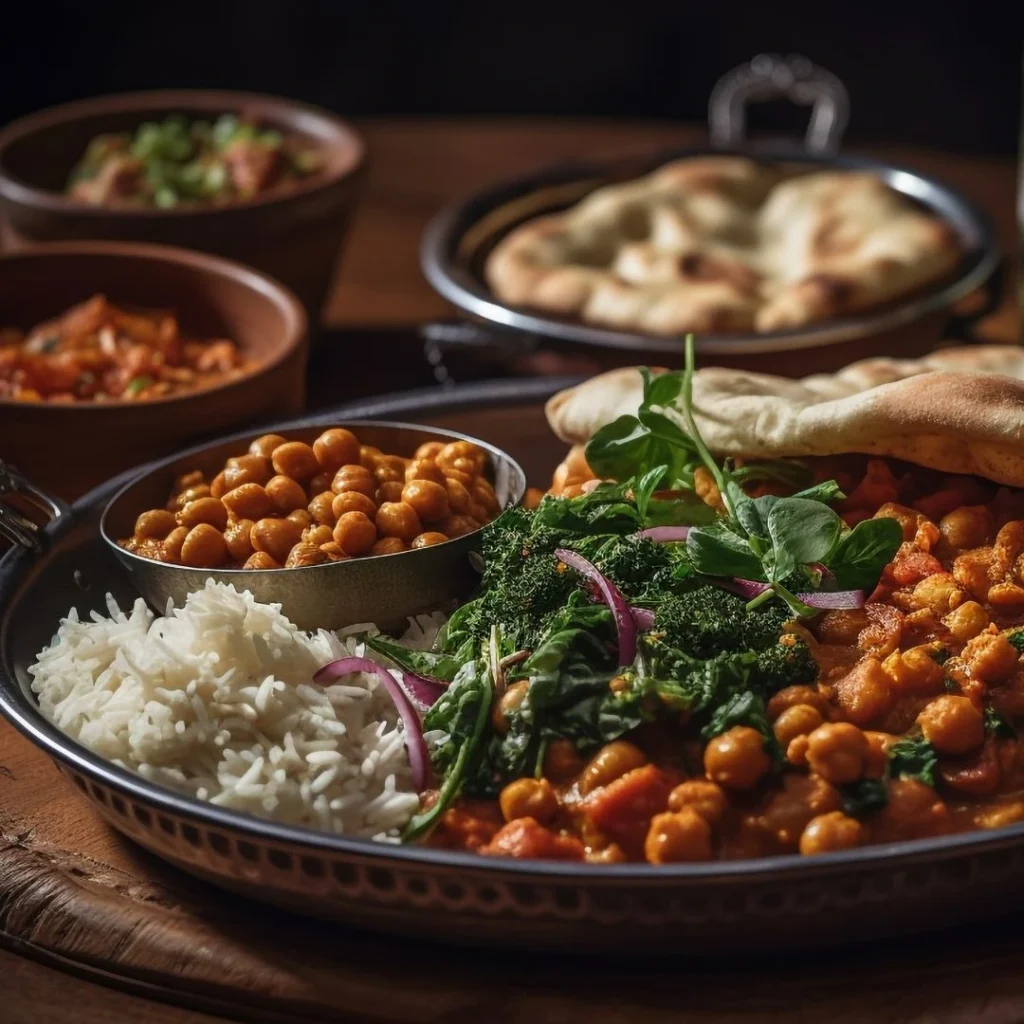
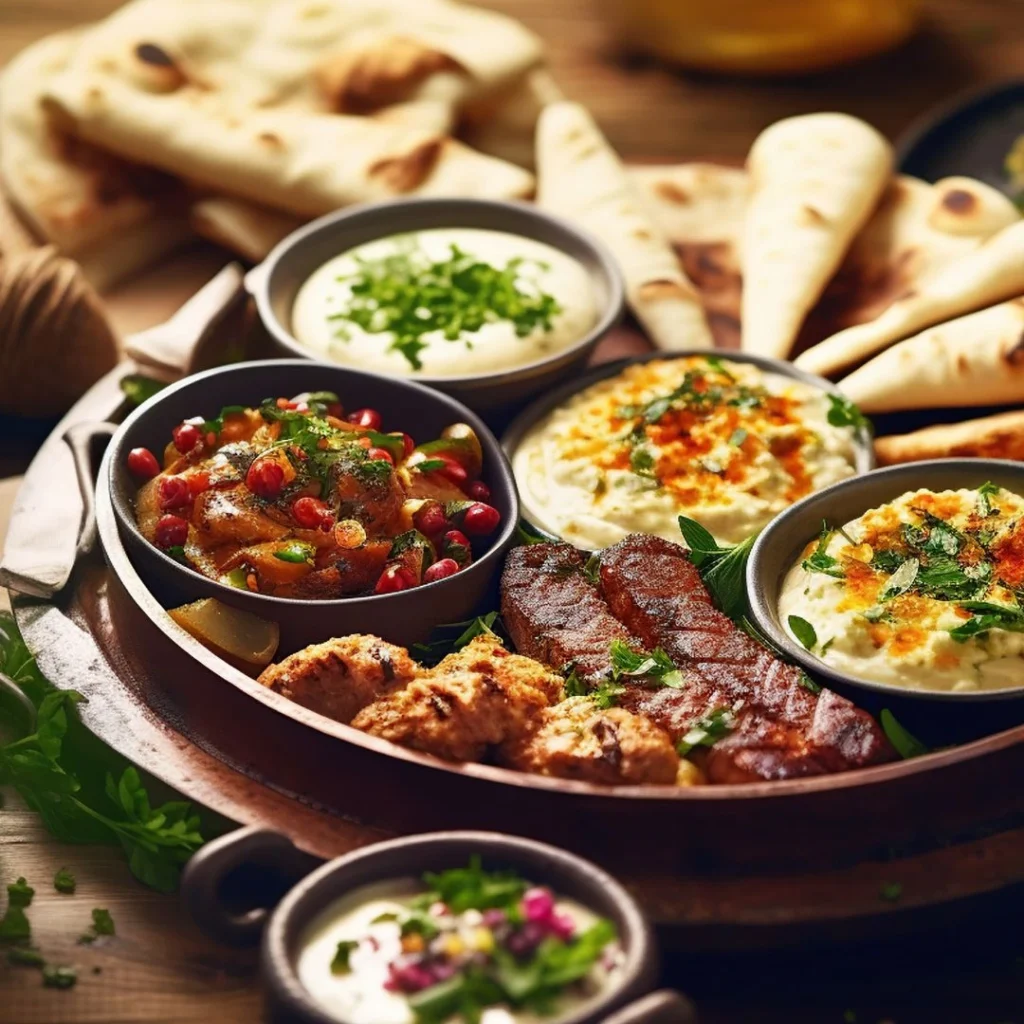
Below are handpicked dishes you can prepare easily, even if you’re just starting out in Indian cooking.
Classic Everyday Dishes
Chana Masala (Chickpea Curry)
A hearty, protein-packed curry that pairs beautifully with rice or flatbread.
Ingredients Table:
| Ingredient | Quantity |
|---|---|
| Chickpeas | 2 cups (cooked) |
| Onion | 1 large |
| Tomato | 2 medium |
| Ginger-Garlic Paste | 1 tbsp |
| Cumin Seeds | 1 tsp |
| Garam Masala | 1 tsp |
| Turmeric | ½ tsp |
| Salt | To taste |
Steps:
- Heat oil, add cumin seeds until they sizzle.
- Add onions, sauté until golden.
- Mix in ginger-garlic paste, tomatoes, and spices.
- Add chickpeas, simmer for 10 minutes.
- Garnish with fresh coriander.
Aloo Gobi (Potato & Cauliflower Curry)
Comfort food at its finest — warm, slightly crisp potatoes and cauliflower coated in turmeric and spices.
Cooking Tip: To keep the cauliflower from turning mushy, fry it separately before adding to the curry.
Dal Tadka (Yellow Lentil Curry)
A staple in every Indian home. The magic comes from the tadka — a sizzling mix of ghee, garlic, cumin, and chili poured over the cooked lentils.
Festive & Special Occasion Recipes
Paneer Butter Masala
Creamy, mildly spiced, and perfect with naan. Use fresh cream for the smoothest texture.
Vegetable Biryani
Fragrant basmati rice layered with spiced vegetables, saffron milk, and fried onions.
Malai Kofta
Paneer and potato dumplings in a silky cashew-based sauce — the definition of indulgence.
Quick & Easy Snacks
Vegetable Samosa
Crispy pastry filled with potatoes, peas, and aromatic spices.
Pakoras (Vegetable Fritters)
Slices of onion, spinach, or potato dipped in chickpea batter and fried.
Masala Dosa
Thin, crispy crepe filled with spiced mashed potatoes, served with coconut chutney.
Cooking Tips for Authentic Vegetarian Indian Food
- Roast Your Spices: A quick roast enhances depth and richness.
- Use Fresh Herbs: Cilantro and mint brighten the flavors.
- Balance Is Key: Indian food often blends spicy, tangy, and sweet.
- Slow Cooking Wins: Give curries time to develop layers of taste.
- Experiment Regionally: Try South Indian coconut-based dishes or North Indian cream-based gravies.
Nutritional Benefits of Vegetarian Indian Food
- Plant Protein Power: Lentils, beans, and paneer help you stay full longer.
- Heart Healthy: Low in cholesterol and high in antioxidants.
- Weight-Friendly: Fiber-rich foods help control appetite.
- Gut Health Boost: Fermented foods like dosa batter and yogurt aid digestion.
Sample 1-Week Vegetarian Indian Food Meal Plan
| Day | Breakfast | Lunch | Dinner |
|---|---|---|---|
| Mon | Poha | Chana Masala + Rice | Dal Tadka + Roti |
| Tue | Masala Dosa | Aloo Gobi + Chapati | Vegetable Biryani |
| Wed | Paratha + Yogurt | Rajma Curry + Rice | Palak Paneer |
| Thu | Idli + Sambar | Mixed Veg Curry | Malai Kofta |
| Fri | Upma | Chole + Bhature | Paneer Butter Masala |
| Sat | Vegetable Sandwich | Tofu Curry + Rice | Masoor Dal + Salad |
| Sun | Poori + Aloo Curry | Vegetable Pulao | Kadhi Pakora |
FAQ – Vegetarian Indian Food Recipes
Q1: What is the most popular vegetarian Indian food?
Chana Masala, Paneer Butter Masala, and Dal Tadka top the list for both locals and global fans.
Q2: Are all Indian dishes spicy?
No — you can adjust spice levels to your liking. Many dishes are naturally mild.
Q3: Is vegetarian Indian food healthy?
Yes — it’s nutrient-dense, rich in fiber, and balanced with proteins and healthy fats.
Q4: Can I make these recipes without ghee or oil?
Absolutely. Use steaming, baking, or air frying for lighter versions.
Conclusion & Call-to-Action
Now that you know the magic of vegetarian Indian food recipes, the next step is yours. You’ve seen the ingredients, learned the techniques, and discovered dishes that range from quick snacks to festive feasts.
Don’t just bookmark this — choose one recipe today, gather your spices, and let the aromas fill your home. Each dish you create will bring you closer to mastering one of the world’s most celebrated cuisines.
🌿 Your kitchen is your ticket to India. Start cooking tonight!
Did You Try Our Recipe ?
There are no reviews yet. Be the first one to write one.

